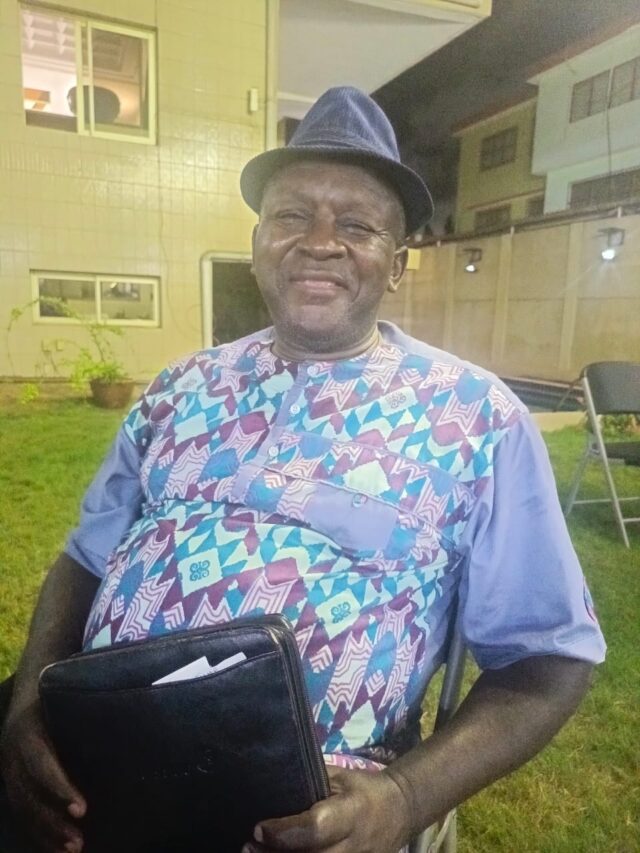A Cameroonisn water engineer and European Union consultant, Joseph Wethe on Wednesday threw his full weight behind Nigeria’s under-20 national team, Flying Eagles, at the WAFU B qualifiers in Lome, Togo.
Speaking to sports247.ng hours before Nigeria battled Ghana in an epic final between both teams that had already qualified for the 2025 African U20 Cup of Nations, Wethe, who is also an environmental maintenence expert, said he was certain the Flying Eagles would defeat the Black Satellites.
While disclosing that he hails from Western Cameroon but has lived in Burkina Faso for 35 years, Weite also recalled years of football rivalry between his country and Nigeria, which he cited as the major reason behind his support for the Flying Eagles.
Wethe affirmed, “Nigeria is a very good country in football. We have met together many times in the past.
“I know what they can do, and I am sure Nigeria will beat Ghana. I close my eyes, 100%, I am sure this is Nigeria’s victory.”
He, however, did not have as much conviction when asked to analyse the current state of water sanitation and environment protection across Africa, vis-a-vis projections for the future.
The articulate town planning expert and civil engineer, who specialises in water sanitation and environment protection, added in the chat with sports247.ng that Africa has many hurdles to cross in that aspect of life.
“It’s a huge challenge. No attention is given to water sanitation in our countries. Efforts are not sufficient.
“We are always facing a lack of services in both rural and urban areas,” Weite moaned.
He then unfolded some elaborate steps that have been taken by some agencies and projected to turn the story round on the continent, but lamented how lack of manpower keeps truncating those efforts.
Wethe added, “We decided to seek 100% access to water sanitation services in 2030, but the evolution is not in our favour.
“We have to accelerate so that every African …. every Togolese, every Nigerian … has access to water sanitation in good condition in each African country.
“This is a big challenge, and it needs enough resources … financial resources, human resources … and more effort in all terms for us to achieve those goals in 2030.
“The very big problem is not finance – it’s human resources … qualified and experienced implemented human resources.”
He went on to add why human resources is the most pressing factor needed to drive the search for easily accessible and identifiable water sanitation in Africa
“We need them to make projects and to develop ideas into structures on the field.
“If you have a good project, you need to also have enough human resources to power it, and finance will follow.
“In Africa, we don’t have good projects, but finance partners are there. They have enough money, but they can’t find a good project with educators who meet their conditions.”
He concluded by throwing light on the efforts he has undertaken personally to change the tale about lack of attention for water sanitation and cleaning the environment in African countries.
“We need enough human resources. That’s why, in my approach, I am a lecturer to help create a critical mass of water engineering projects in Africa and to develop them.
“We have to make studies, implement projects and monitor them. We need more in terms of human resources.
“I’ve decided to make those three aspects available. Research for good practises, training capacity to promote human resources, and making engineering studies available for good projects,” Weite submitted enthusiastically.









